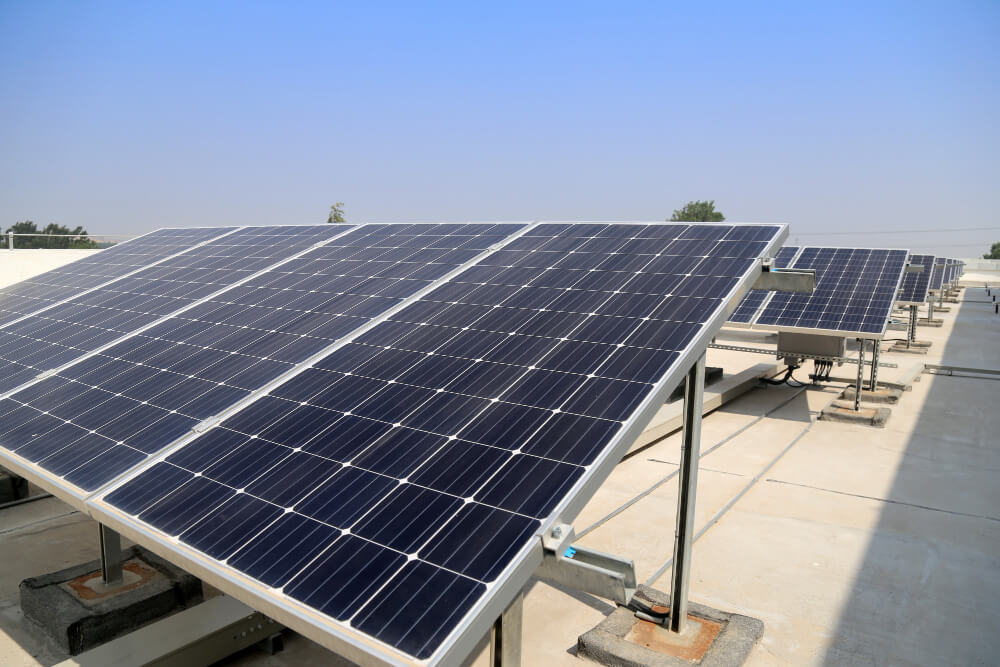Rooftop Solar—Complete 2025 Guide
Rooftop solar is quickly becoming the most popular way for Indian households and businesses to save on electricity bills while reducing dependence on fossil fuels. With government subsidies, net metering policies, and falling panel costs, more families are asking, "How much does rooftop solar cost, and is it worth it?"
This guide breaks down everything you need to know about rooftop solar in India—cost, subsidies, installation process, and long-term savings.
What is Rooftop Solar?
Rooftop solar refers to solar panels installed on the roofs of houses, apartments, or commercial buildings. These systems generate clean electricity using sunlight and supply power directly to the household or export excess power to the grid through net meters.
Unlike large ground-mounted solar farms, rooftop systems are small-scale but highly efficient, perfect for residential and small business use. If you’ve already looked into solar PV modules types, you’ll know that choosing the right module directly impacts the efficiency of your rooftop system.
Rooftop Solar Cost in India (2025)
The rooftop solar system cost varies based on size and type of installation. On average:
- 1 kW system: ₹70,000 – ₹85,000
- 3 kW system: ₹180,000 – ₹230,000
- 5 kW system: ₹300,000 – ₹380,000
- 10 kW system: ₹6,00,000 – ₹7,50,000
👉 Most households choose a 3–5 kW rooftop solar system, which is enough to run fans, lights, refrigerators, and air conditioners. For deeper comparisons, check guides on Solar Panel Cost House and Solar for Home Cost.
Government Subsidies for Rooftop Solar
Under the PM Surya Ghar: Muft Bijli Yojana, residential users can claim subsidies:
- Up to ₹30,000 for 1 kW
- Up to ₹60,000 for 2 kW
- Up to ₹78,000 for 3 kW and above
This subsidy is capped at 3 kW for individual houses, but larger systems can still benefit from lower per-unit electricity costs.
For example, a 3 kW system costing ₹1.8 lakh can come down to nearly ₹1 lakh post-subsidy. Always verify subsidy eligibility with your local DISCOM or through certified Solar Panel Suppliers.
Components of a Rooftop Solar System
A complete rooftop solar setup includes:
- Solar panels: Solar panels serve as the primary modules responsible for generating electricity. (Compare Solar Energy Panels Price and Solar PV Panels Price in India to find affordable options).
- Inverter—Converts DC to AC electricity.
- Mounting structure—Holds the panels securely on your roof.
- Net meter—Tracks electricity exported to and imported from the grid.
- Wiring and safety devices —for smooth functioning and protection.
- Optional batteries —for off-grid or hybrid systems.
Installation Process
Rooftop solar installation is straightforward when managed by certified contractors:
- Site Survey—Assessing your roof’s suitability.
- System design—choosing the right capacity.
- Subsidy & Approvals —File with DISCOM.
- Installation—Mounting, wiring, and inverter setup.
- Net Metering – Connecting to the grid.
Certified Solar Energy Contractors make the process hassle-free. Advanced technologies like Drone Thermal Imaging are also used to detect panel defects post-installation, while Top Drone Service Providers in Chandigarh offer rooftop surveys to optimize panel placement.
Rooftop Solar Benefits
- Lower Electricity bills— Save up to 90% on monthly bills.
- Energy Independence—Generate your own power.
- Eco-Friendly – Reduce carbon footprints.
- Property Value—Homes with solar installations attract higher resale value.
- Government Support—Subsidies and net metering policies make it more affordable.
When you invest in a Solar Electric Panel for Home, you’re not just saving money—you’re future-proofing your energy needs.
FAQs
Q1: What is the lifespan of rooftop solar panels?
A: Most panels last 25–30 years with minimal maintenance.
Q2: Can rooftop solar run AC and heavy appliances?
A: Yes, with the right system size (5 kW+).
Q3: Do I need batteries for rooftop solar?
A: Not for on-grid systems, but off-grid setups need batteries.
Q4: How often do panels need cleaning?
A: Every 2–4 weeks, depending on dust levels.
Q9: Who are the best rooftop solar suppliers in India?
A: Compare options from your local Solar Panel Manufacturer Company in India and Solar Panel Suppliers.
Q10: Can drone technology help with installation?
A: Yes, both Drone Thermal Imaging and Drone 3D Mapping improve installation accuracy and performance monitoring.
Final Thoughts
Rooftop solar is one of the best investments for Indian households in 2025. With government subsidies, falling panel prices, and easy financing options, it’s now more affordable than ever.
By choosing the right solar panel suppliers, comparing prices, and working with certified solar energy contractors, you can enjoy clean energy, reduced bills, and long-term savings for decades.

